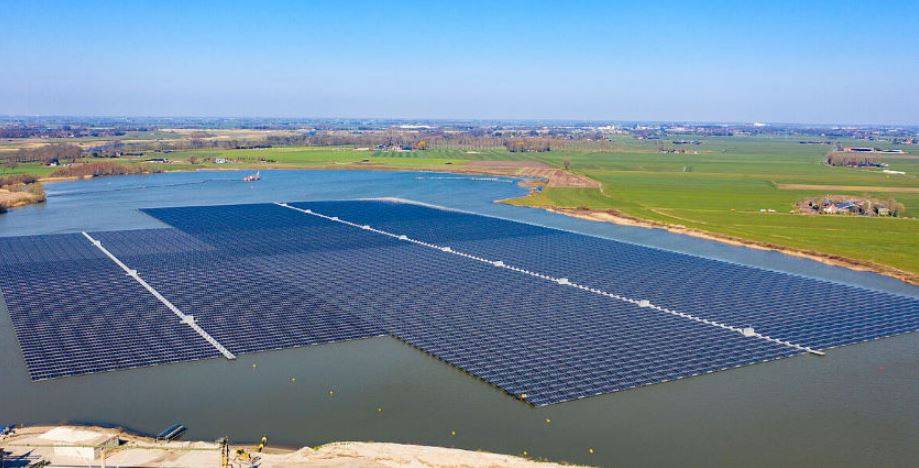
Increased knowledge of renewable energy sources' inevitability has prompted a new question: how can you make room to generate green power? Bihar has come up with a novel solution: local water bodies. In Darbhanga, the state is expected to obtain a 2-megawatt floating solar power generation unit within a month. Pisciculture is another goal of the initiative.
The unit, which has been commissioned to Avaada Energy, a private company, will be installed over a six-acre pond. "We are preparing to commission the plant, and we expect it to be operational soon," Rohit Kumar, an Avaada Energy official, told this reporter after touring the facility 200 kilometres north of Patna.
According to officials, Avaada will transmit power from the facility to the Bihar Renewable Energy Development Organization (BREDA), a government agency tasked with expanding clean renewable energy.
Kumar stated that Avaada had inked a 25-year power purchase agreement with BREDA. North Bihar Power Distribution will distribute power from the plant to local users on behalf of BREDA.
Over 4000 Solar Modules
There are 4,004 solar modules in the plant. Each module is submerged in the pond and can produce 505 megawatts peak (MWp) of energy. Around 2 MW of green and clean energy will be generated. The project will offer electricity to 10,000 people in the state once it is operational.
"It will generate 2.7 million units yearly and help to reduce 64,125 tonnes of CO2 over its 25-year lifecycle," according to an Avaada Energy press statement. The fundamental advantage of a floating solar power plant is that the water cools the solar panels, increasing their efficiency when temperatures rise and resulting in more power generation.
The floating power plant will aid in the achievement of two objectives: the production of green energy from solar panels and the promotion of fish aquaculture. The concept could be a game-changer in terms of repurposing waterbodies for useful purposes and giving them a new lease on life.
Sanjay Kr Jha, Bihar's water resources minister, recently tweeted that floating solar power plants were part of Chief Minister Nitish Kumar's ambitious strategy to harness water bodies for sustainable development by generating green energy while also growing fish.
With the tagline ‘Niche machli, upar bijli,’ Nitish Kumar heralded the start of something new only a few years ago (fish below and energy above). Jha further stated that the state's second floating solar plant is now being built in the Supaul area and will be completed by the end of March 2022.
According to a BREDA official, floating solar power plants on various water bodies in the state have a lot of promise. The flood-prone north Bihar districts, which include the Mithila region, sometimes known as the "country of ponds," as well as the Koshi and Seemanchal regions, are particularly affected.
















